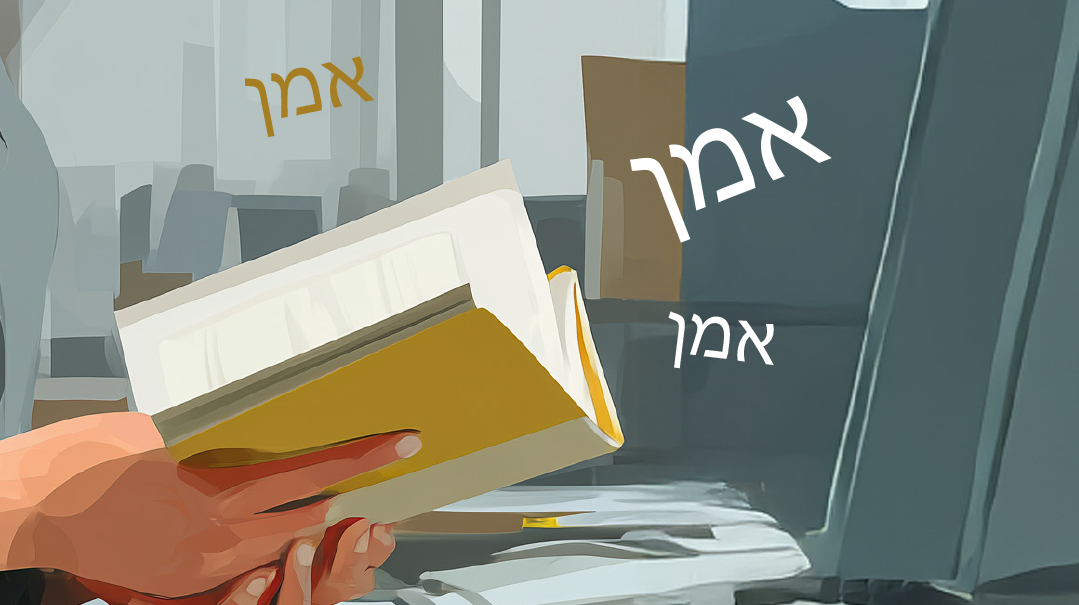Pesach Pointers

The garbage truck isn’t coming on Erev Yom Tov — and other pre-Pesach dilemmas

Prepared for print by Faigy Peritzman
What happens if I forget to say kol chamira? I’m so worried that I may have missed a crumb cleaning, and now, if it’s not hefker, does that mean I still have actual chometz in my house?
Even if somehow, you forgot (twice) to recite kol chamira, crumbs and pieces of chometz smaller than a k’zayis are going to be hefker regardless (especially if they’re unfit for consumption), and you will not have transgressed the prohibition of having chometz in your home over Pesach. Remember, kol chamira needs to be recited by your husband (or father), not by you, unless you’re the head of the household or unless you were specifically authorized to do so by the head of the household.
We’re going to my in-laws for all of Pesach. Are we obligated to do bedikas chometz before we leave?
If you follow the custom of selling your chometz to a non-Jew through a rav, and include your entire house in the sale, then you’re technically exempt from bedikas chometz as well. Still, it’s customary and appropriate to designate one room in the house as not being sold to the non-Jew, and to clean and check that room on the night of bedikas chometz, with a proper brachah.
My husband insists on taking out each sefer, moving furniture, etc., during bedikas chometz. If I spent weeks cleaning already, why must he do this?
He’s not halachically required to do all of that. All he needs to do is to check that those areas in the house where chometz was brought into during the year were indeed cleaned and made kosher for Pesach. He’s not required to check behind the furniture or behind the refrigerator. In general, seforim only need to be cleaned or checked if you know for sure that a particular sefer was used during the year while eating chometz.
If I have my own office at work, must I clean and do bedikas chometz there?
If during the year chometz was brought into your office, and you’re planning to use the office during Chol Hamoed, then you must clean it, and then check it during bedikas chometz. If chometz wasn’t brought into the office during the year, or even if it was but you’re not planning to use the office during Chol Hamoed, then include your office with the mechiras chometz, and that will exempt you from the bedikah.
When selling chometz, is it enough to list our address, or must I specify which places in our house we’re selling? Do the sold places need to be labeled?
While there are various opinions and customs, the recommended way is to label all of the places in the house which you want to include in the sale as “chometz” or “sold,” and then write down on the document that all the places marked as “chometz” or “sold” are included in the sale. This way, you avoid listing and specifying each area.
In general, we try not to sell real chometz. But we made a simchah this year and have a lot of expensive drinks left over. May we sell them if we’d lose a lot of money by throwing them out?
Many people who usually don’t sell chometz gamur are lenient when it comes to expensive drinks and sell those as well. If in past years you undertook a stringency not to sell any type of chometz, including expensive drinks, then you need to be matir neder for this year, and then include your expensive drinks with your chometz sale.
There is no garbage collection this year on Erev Pesach. What should I do with chometz I have left on Erev Pesach that will not be collected before Yom Tov?
In most localities, garbage cans are the property of the city or of the private sanitation company. If so, then the chometz in the garbage cans isn’t considered to be in your possession and you’re not responsible for it. If you privately own the garbage cans, then you must render any chometz which may be in the garbage as unfit for consumption (by pouring ammonia, etc., over it) before midday of Erev Pesach.
Do women fast Taanis Bechoros on Erev Pesach?
The widespread custom follows the opinion that women don’t fast Taanis Bechoros (even though Makkas Bechoros included them as well), since women don’t have the halachic status of a bechor. Still, some firstborn women are careful to attend a siyum (or eat some food that was served at a siyum) in order to exempt themselves from the taanis according to all opinions. In addition, some poskim recommend that a mother of a little bechor (who is too little to attend a siyum on his own) whose husband is also a bechor, should attempt to attend (or partake of) a siyum, in order to exempt her son from the taanis.
I know we’re not supposed to be eating matzah on Erev Pesach; do matzah balls count?
Matzah balls that have been cooked together with soup are permitted to be eaten on Erev Pesach, but only until the end of the ninth hour of the day (approx. 4:15 p.m. in the eastern US).
When bentshing licht for Yom Tov, do I say shehecheyanu before lighting the candles or after?
There are two customs regarding candlelighting on Yom Tov: Some women light the candles first (as they do every Shabbos) and then they recite both brachos (lehadlik and shehecheyanu), while other women recite both brachos first and then light the candles. Both customs are valid, but if you follow the second custom, take care not to blow out the match after lighting the candles, but rather let the fire go out on its own.
How long must I wait before beginning my preparations for the second Seder on the second night of Yom Tov? What about hadlakas neiros that night?
You shouldn’t begin preparing for the second Seder, nor prepare or light the candles for the second night, before the time you normally would designate as Motzaei Shabbos on a regular Shabbos.
I’m so busy on Erev Yom Tov, I have no time to eat, and I come to Leil HaSeder starving. Is there anything I’m allowed to eat before Shulchan Oreich?
Ideally, once the time to perform a mitzvah arrives, one isn’t supposed to eat anything, so it’s important to find the time to eat something before Pesach begins. But if that didn’t happen and you find yourself to be hungry or weak and will not be able to partake of the Seder in the proper manner, it’s permitted to eat something small after Kiddush. Preferably, you should do so before the beginning of the recital of the Haggadah, but when necessary, it’s permitted to eat something small all the way until the paragraphs of Hallel that are said at the end of Maggid.
(Originally featured in Family First, Issue 888)
Oops! We could not locate your form.







